News
Concerns Rise as Undernourished Dugong Spotted in Trang Raises Alarm for Marine Ecosystem
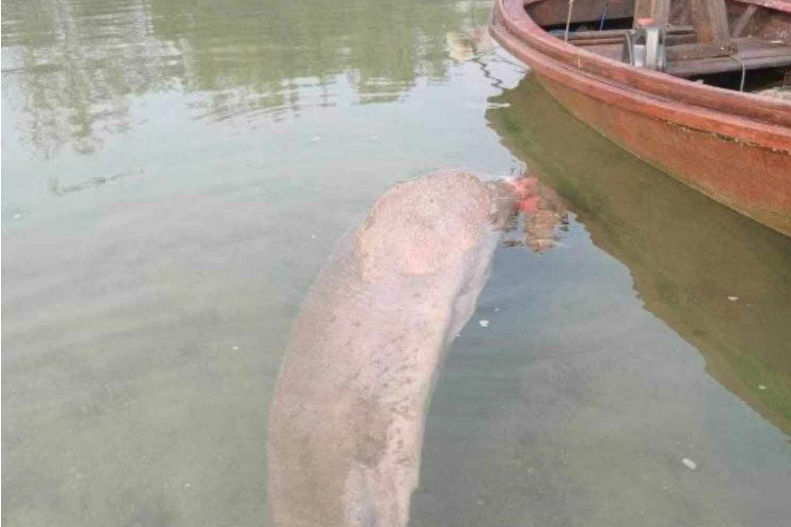
In Trang’s Koh Libong area, a sanctuary renowned for its dugongs, a sighting of an undernourished and feeble dugong has sparked concern among both the public and researchers.
The distressing condition of the animal underscores the pressing issue of dwindling seagrass in the region, attributed to human activities and climate change. The discovery of the undernourished dugong in Trang raises alarm for the marine ecosystem, prompting urgent attention from authorities and conservationists.
Santi Nirawat, director of the Marine and Coastal Resources Research Centre (Lower Andaman Sea) at the Department of Marine and Coastal Resources (DMCR), emphasized that while the precise cause of the dugong’s poor health remains uncertain, the broader threat posed to marine life by deteriorating environmental conditions in their habitats is unmistakable.
Reports indicate that seagrass depletion around Koh Libong has been evident since 2019, with the DMCR documenting significant deterioration linked to sediment discharge into the sea as part of a river deepening operation.
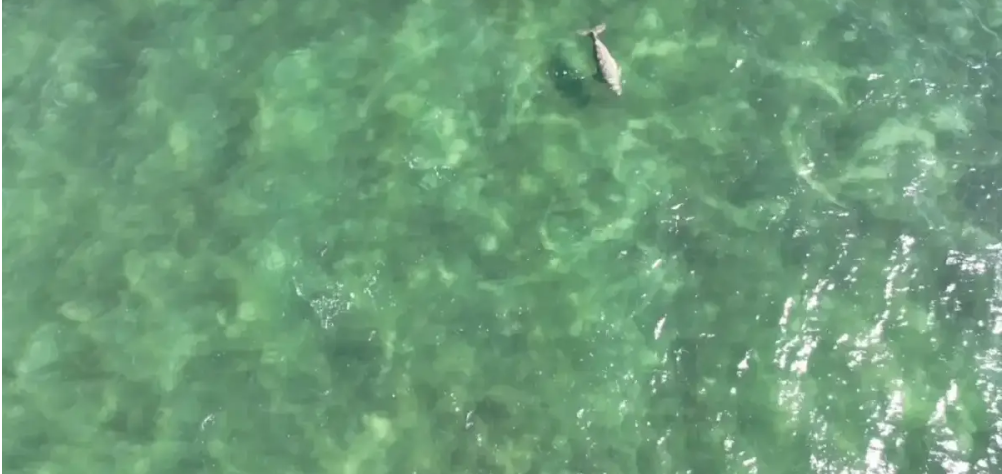
Despite recommendations from the DMCR to halt the activity to safeguard marine life, seagrass recovery efforts yielded minimal results. Instead, concerns regarding the declining health of seagrass in various areas have escalated.
Santi disclosed alarming statistics, revealing that approximately 70% of the 34,000 rai of seagrass in Trang’s southern province have suffered severe damage.
The research center has also observed a shift in sediment composition, with an increase in sand content compared to soil sediment, potentially compromising the resilience of the seagrass ecosystem.
Efforts to address these challenges are imperative to safeguard the fragile marine ecosystem and the iconic dugongs that call it home.
Related News: Fatal Motorcycle Accident
In a concerning development, the delicate balance of marine ecosystems around Trang’s Koh Libong area, known for its dugongs, faces significant threats. Unusually high and low tide patterns, resulting in prolonged and shallower low tides, have caused seagrass to dry out, unable to withstand the intensified sunlight.
Additionally, suspicions arise about a fungus affecting the seagrass, exacerbating the situation.
This alarming scenario of seagrass degradation raises urgent concerns for the marine ecosystem, particularly regarding the dwindling population of dugongs.
The team of marine academics and experts are diligently investigating the root causes behind the deteriorating condition of the seagrass.
However, multiple adverse factors, including the impact of climate change, have converged, exacerbating the situation.
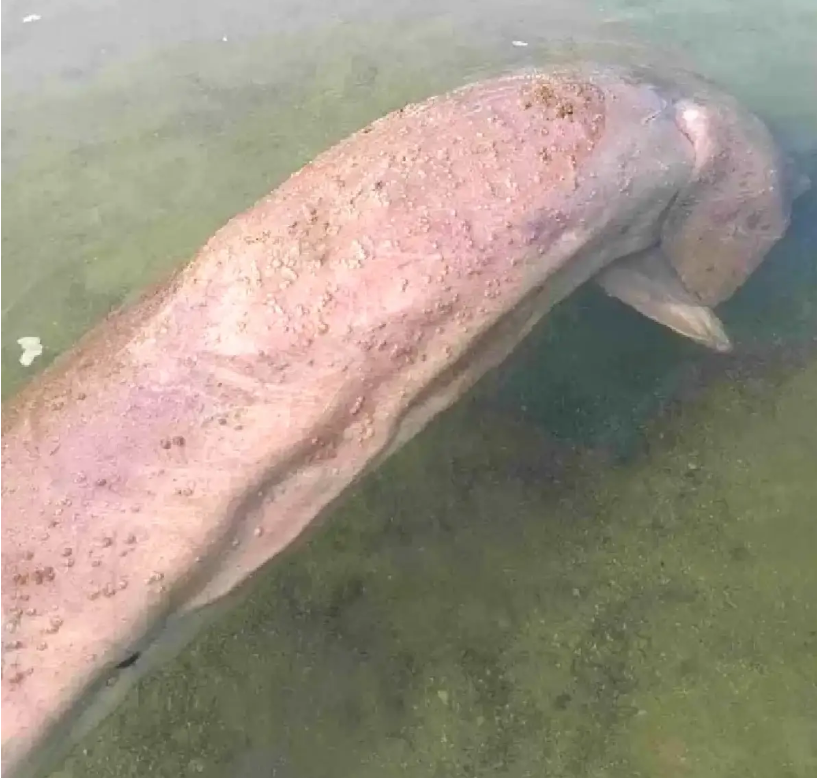
As a precautionary measure, the center advises against establishing a new seagrass plantation at the damaged site, advocating for natural recovery processes. Furthermore, locals are urged to minimize human activities such as fishing in the area to mitigate further damage.
A recent survey conducted by the center revealed a drastic decline in the dugong population, with only 36 individuals observed around Koh Libong and neighboring isles, a stark contrast to the 194 counted the previous year.
It is speculated that the dugongs have migrated to areas with more abundant seagrass resources. Tracking their movements, authorities anticipate their new habitat to remain in close proximity to Koh Libong, reflecting their reliance on seagrass habitats. Potential relocation sites include the waters surrounding Krabi and Satun.
Trang, Krabi, and Satun are identified as critical seagrass sites in Thailand, constituting approximately 70% of the country’s total seagrass coverage. However, despite this significance, the dugong population remains relatively small, estimated at around 200 nationwide.
The alarming decline in seagrass, their primary food source, raises serious concerns about the species’ survival and underscores the urgent need for conservation efforts.
Petch Manopawitr, a conservation scientist and DMCR adviser, emphasizes the dire implications of declining seagrass health, signaling imminent consequences for global climate change.
He warns of potential coral reef bleaching events, reminiscent of the widespread devastation witnessed in 2010 in Mu Koh Surin National Park in Phangnga province.
In response to these challenges, Romtham Khumnurak, a Democrat Party representative from Phatthalung, urges the government to take decisive action against climate change.
He stresses the importance of addressing the seagrass loss issue as a national priority, involving all stakeholders, given its profound impact on livelihoods and ecosystems. The collective effort is essential in safeguarding marine biodiversity and mitigating the adverse effects of climate change on coastal communities.
News
Pickup truck crash in Lampang kills one amid heavy rain
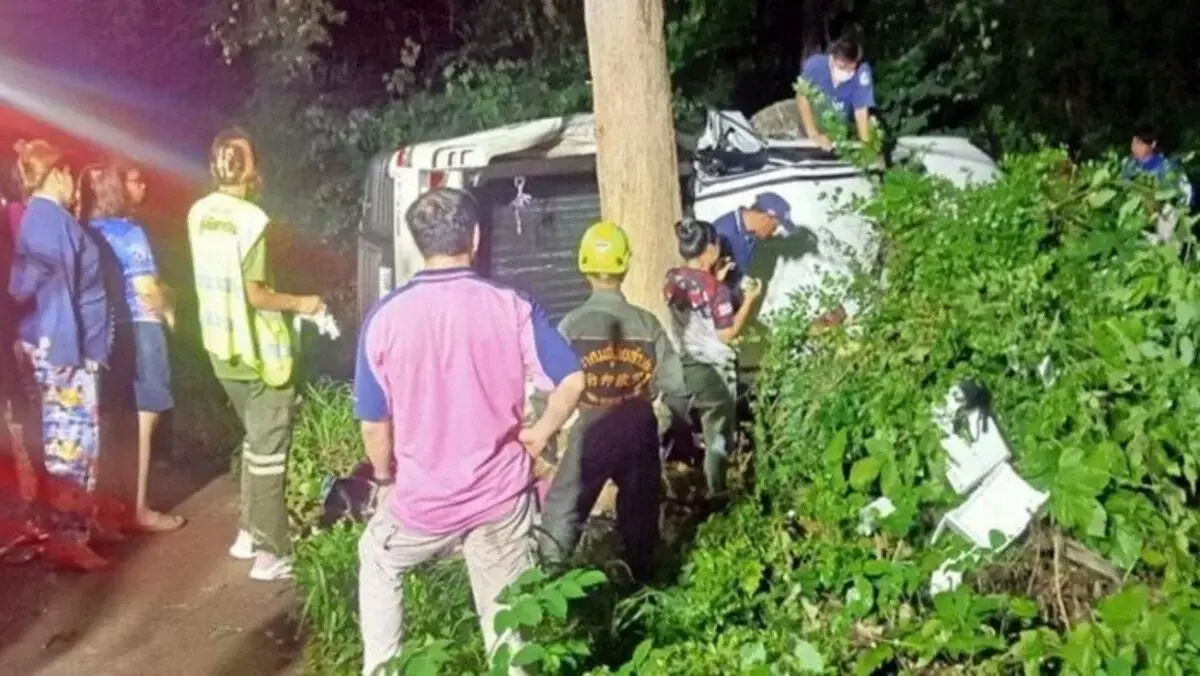
Due to heavy rain, a pickup truck returning from Chiang Mai skidded off the road and crashed into a tree in Thoen, Lampang.
Despite the efforts of rescue teams, a 50-year-old woman tragically lost her life.
The accident was reported to Thoen Police Station in Lampang at 6:50 PM yesterday, July 30.
The incident occurred on Phahonyothin Road, between kilometer markers 632 and 633, near the Mae Thot intersection in Thoen district.
Rescue units from Mae Thot, Lampang, Thoen, and Ombun Thoen were promptly dispatched to the scene.
Related News: Police arrest violent
Upon arrival, responders discovered a white, four-door Mazda pickup truck with a Surin registration overturned and severely damaged from colliding with a large roadside tree. Inside the vehicle, four injured individuals were trapped.
Rescue teams quickly extracted three injured and provided initial medical assistance before transferring them to a hospital.
However, a 50-year-old woman from the Na Pang subdistrict, Phu Phiang district, Nan province, who was seated in the back, sustained critical injuries and succumbed to them before she could be freed from the wreckage.
Initial investigations revealed that the group had traveled from Chiang Mai to Nakhon Pathom.
The accident occurred on a curved section of the road, worsened by wet and slippery conditions from the rain.
The vehicle lost control and crashed violently into the tree.
After extracting and treating the injured, the deceased’s body was transported to the hospital for further examination.
Police have launched a formal investigation into the accident. They are gathering evidence and statements from the injured to understand the exact circumstances leading to the crash.
The results of the investigation will guide necessary legal proceedings, reported KhaoSod.
Authorities advised.
“We urge all drivers to exercise extreme caution, especially in bad weather and on curved roads.”
News
Police arrest violent debt collector after tip-off in Bangkok

Police apprehended a member of a violent debt collection gang linked to the assault of a 73-year-old woman following a tip-off. He was caught while attempting to flee from a motel on the outskirts of Bangkok.
High-ranking police officials, including Thiti Sangsawang, Noppasin Poolsawat, and Thiradech Thamsuthee, along with a team of investigators, successfully arrested Kritchit, also known as 33-year-old Chit Thasala, from Nakhon Si Thammarat Province today, July 30.
He is one of the three members of the gang responsible for violent debt collection activities, including physical assault, intimidation, kicking doors, cutting off electricity, and locking debtors inside their homes.
The Min Buri Criminal Court issued an arrest warrant for Kritchit on July 23 for operating an unauthorized personal loan business, charging excessive interest, and threatening debt collection practices.
Related News: Thai vendor denies
He was apprehended at a hotel in the Saphan Sung district as he tried to escape in his car. During interrogation, Kritchit denied all charges, stating he had only completed Grade 9 and initially worked as a fruit farmer in Phuket’s Thalang District. In 2022, he sold his orchard land and used the proceeds to start a money-lending business.
He collaborated with two other suspects, Ta and Khet, who are still at large, to lend money in the Min Buri, Ram Inthra, Rom Klao, and On Nut areas.
They charged an interest rate of 20% daily, with borrowers typically taking out 5,000 to 6,000 baht loans. Kritchit claimed that Ta and Khet were responsible for using violence against the debtors on the day of the incident.
“I only worked with Ta and Khet to lend money. They were the ones who used violence.”
However, police remain skeptical of his testimony. Investigations revealed that Kritchit is romantically involved with the younger sister of Kenwit, another gang member who was previously arrested for assaulting the older woman.
Kenwit’s gang had attacked the 73-year-old in the Chokchai area. After receiving a tip-off, Kritchit fled to the hotel, where he was captured.
Police have transferred Kritchit to the Min Buri Police Station for further legal proceedings. His capture is a significant breakthrough in the ongoing crackdown against violent debt collection gangs operating in Bangkok and nearby areas.
As one of the lead investigators remarked, we are committed to cracking down on these illegal activities and ensuring the safety of our citizens.
Kritchit’s case will proceed through the legal system, and police are continuing their search for the remaining gang members, Ta and Khet. The investigation remains ongoing, with police hopeful that further arrests will follow, dismantling the entire network of violent debt collectors, reported Khaosod.
News
Thai vendor denies assault, cites stress from poor sales
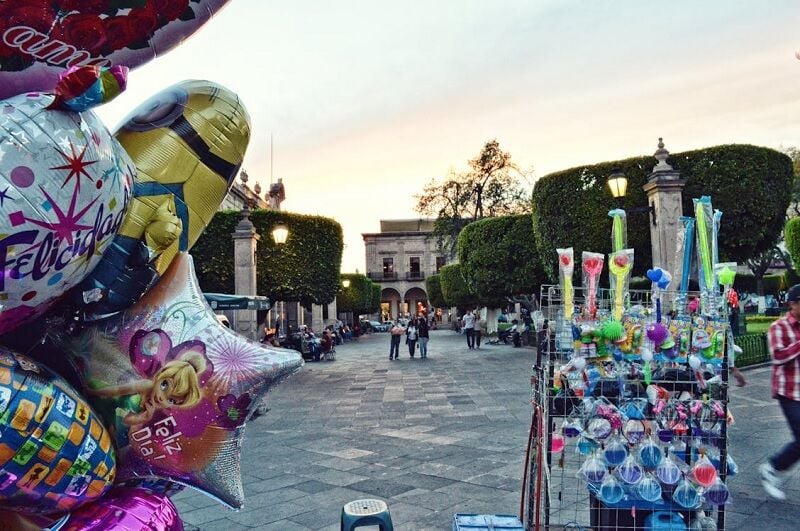
A Thai grilled squid vendor turned himself in and expressed remorse after allegedly striking a Pattaya city official who requested him to move his sidecar motorcycle from obstructing traffic.
The vendor, however, denied the physical assault, citing stress from poor sales as the trigger for the incident. He claimed their encounter was limited to a verbal disagreement and a shirt tug.
Pattaya police yesterday, July 29, invited Siwachett Nakham, a 42-year-old former temporary employee at the government’s Public Works Department and a current grilled squid vendor, to meet with an investigator to address the dispute.
Related News: Legend enjoys spring
The altercation involved Siwachett and a 40-year-old Pattaya city official, Udon Woranam, who had requested Siwachett to move his vehicle, blocking traffic near Jomtien Beach in front of the Dongtan Police Box. Siwachett was accused of punching Udon after the latter politely asked him to move his motorcycle. Siwachett, who acknowledged being the person in the video, denied the physical assault, maintaining that he only had a verbal confrontation with Udon and tugged his shirt.
He cited stress from poor sales and financial burdens as the reasons behind his behavior.
“I did not intend to harm Mr Udon because I had worked with the Public Works Department before, so I knew hitting an official was a bad idea.”
Siwachett apologized for his actions, and Udon said he did not wish to pursue the matter further. Despite this, Pattaya City insisted on taking legal action against the vendor to set a precedent and deter similar future incidents.
Selling goods
Additionally, Udon advised other vendors to remain calm, control their emotions, and adhere to the designated areas for selling their goods according to the law.
Following resolving this dispute, traffic police officers from Pattaya Police Station raided vendors illegally selling goods on public sidewalks and roads around Pattaya. This operation was in response to tourists’ complaints about obstructions and hazards caused by unorganized vendors.
When authorities arrived near Pattaya Police Station’s Dong Tan substation, they encountered heavy traffic congestion caused by street vendors parking on the road. Some vendors attempted to evade arrest by speeding through the officers’ blockade, putting the safety of officers and nearby individuals at risk.
Thai police managed to apprehend 12 vendors, who will now face legal proceedings for violating traffic and cleanliness laws. The police also announced plans to increase daily inspections in collaboration with municipal officials to restore public spaces for residents and tourists, reported the Pattaya News.
-

 News1 year ago
News1 year agoMICE industry must prioritise people management to sustain growth
-

 Entertainment2 years ago
Entertainment2 years agoDark history to exotic delights: Cambodia and Thailand tourist strategy
-

 Entertainment2 years ago
Entertainment2 years agoJohn Legend enjoys spring break in Phuket
-

 Entertainment2 years ago
Entertainment2 years agoSiam Paragon and Bangkok Pride proudly celebrates Pride Month from May 31 – June 4, 2024
-
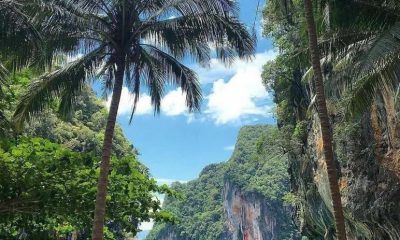
 Entertainment2 years ago
Entertainment2 years agoPhuket’s Tourist Case court division resumes after four-year break
-
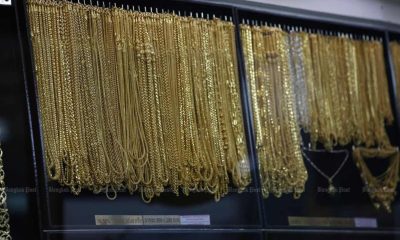
 Fashion2 years ago
Fashion2 years agoFed’s rate cut sends gold soaring past US$2,200 per ounce
-

 Fashion2 years ago
Fashion2 years agoGold prices in Thailand surge with ornaments at 37,350 baht
-
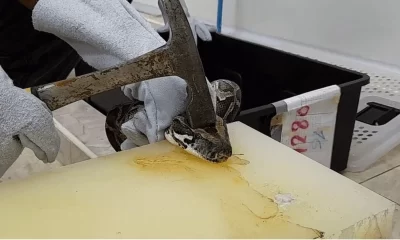
 Fashion2 years ago
Fashion2 years agoFashion brands linked to brutal slaughter of reptiles in Thailand (video)




